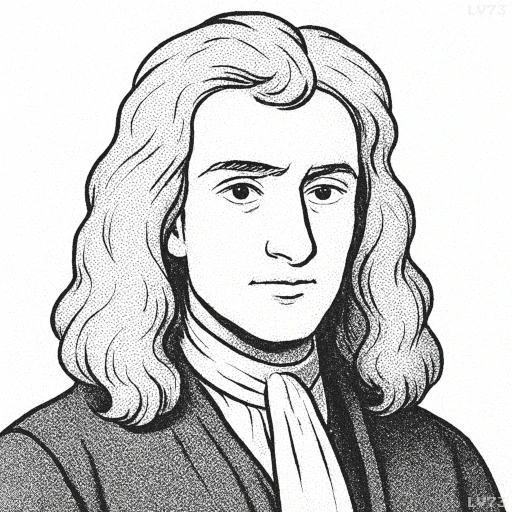“If anyone offers conjectures about the truth of things from the mere possibility of hypotheses, I do not see by what stipulation anything certain can be determined in any science, since one or another set of hypotheses may always be devised which will appear to supply new difficulties.”

- January 4, 1643 – March 31, 1727
- Born in England (UK)
- Natural philosopher, mathematician, physicist, astronomer, theologian
table of contents
Quote
“If anyone offers conjectures about the truth of things from the mere possibility of hypotheses, I do not see by what stipulation anything certain can be determined in any science, since one or another set of hypotheses may always be devised which will appear to supply new difficulties.”
Explanation
In this quote, Isaac Newton is cautioning against drawing conclusions about the truth of natural phenomena based solely on hypotheses or conjectures. He argues that if we base our understanding of the world on the mere possibility of various hypotheses—without solid, empirical evidence—then nothing in science can be considered certain. Newton suggests that for any scientific question, a range of hypotheses can always be proposed, each of which might offer different explanations or solutions, leading to new difficulties or contradictions. This viewpoint reflects Newton’s belief in the importance of empirical observation and mathematical proof in establishing scientific truths.
Newton’s insistence on certainty through evidence and logical reasoning aligns with his broader scientific philosophy, which emphasized the need for testable and observable phenomena to support theories. This is particularly evident in his groundbreaking work on gravitation and the laws of motion, where he used mathematics and careful observation to form conclusions about the behavior of celestial bodies and physical systems, rather than relying on speculative ideas. Newton’s approach to science was not to entertain ideas that could not be substantiated by evidence, thus rejecting the idea of accepting theories based on unfounded speculation.
In modern science, Newton’s stance remains relevant. The idea that scientific theories must be grounded in empirical data and observable facts is a cornerstone of the scientific method. Today, hypotheses are developed to explain observed phenomena, but they are rigorously tested and either supported or refuted through experiments and observations. The scientific community continues to operate under the principle that certainty in science comes only when a theory consistently aligns with the data and has withstood scrutiny. Newton’s caution against relying too heavily on untested hypotheses remains a guiding principle in scientific inquiry.
Would you like to share your impressions or related stories about this quote in the comments section?
